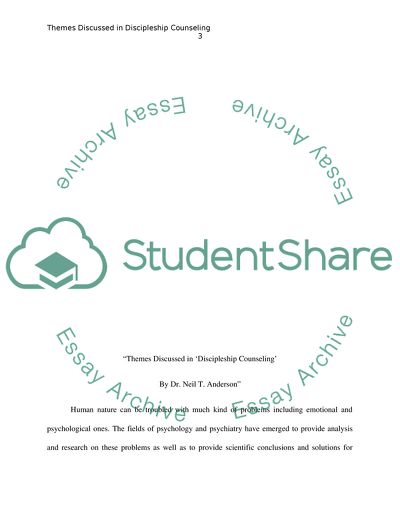Cite this document
(Themes Discussed in Discipleship Counseling Book Report/Review Example | Topics and Well Written Essays - 1750 words, n.d.)
Themes Discussed in Discipleship Counseling Book Report/Review Example | Topics and Well Written Essays - 1750 words. https://studentshare.org/psychology/1779560-discipleship-counseling
Themes Discussed in Discipleship Counseling Book Report/Review Example | Topics and Well Written Essays - 1750 words. https://studentshare.org/psychology/1779560-discipleship-counseling
(Themes Discussed in Discipleship Counseling Book Report/Review Example | Topics and Well Written Essays - 1750 Words)
Themes Discussed in Discipleship Counseling Book Report/Review Example | Topics and Well Written Essays - 1750 Words. https://studentshare.org/psychology/1779560-discipleship-counseling.
Themes Discussed in Discipleship Counseling Book Report/Review Example | Topics and Well Written Essays - 1750 Words. https://studentshare.org/psychology/1779560-discipleship-counseling.
“Themes Discussed in Discipleship Counseling Book Report/Review Example | Topics and Well Written Essays - 1750 Words”. https://studentshare.org/psychology/1779560-discipleship-counseling.


